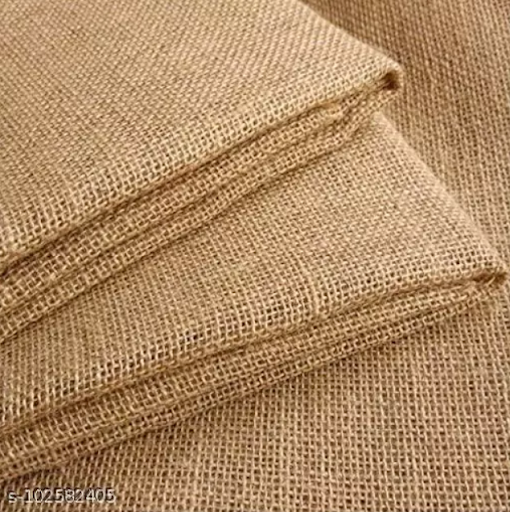Environmental consciousness is paramount. In that case, innovative materials like jute non-woven have emerged as sustainable alternatives. This remarkable fabric, derived from natural jute fabric, is making waves across industries for its eco-friendly properties and versatility. In this comprehensive exploration, we will delve into the impact of jute non-woven, shedding light on its applications, benefits, and role in promoting sustainability.
Understanding Jute Non-Woven:
Jute non-woven is a textile material crafted from jute fibers without the traditional weaving process. Instead, these fibers are bonded together through mechanical and chemical processes, creating a fabric that is both durable and environmentally responsible. Jute, a long, soft, and shiny vegetable fiber, is predominantly grown in India and Bangladesh and is celebrated for its biodegradability and renewability.
Applications of Jute Non-Woven:
- Shopping Bags: Jute non-woven is a popular choice for crafting reusable shopping bags. These reusable shopping bags offer a sustainable alternative to single-use plastic bags, reducing environmental impact and promoting responsible consumer choices.
- Geotextiles: Jute non-woven finds extensive use in geotextile applications. It serves as a natural, biodegradable solution for erosion control, soil stabilization, and land reclamation projects.
- Packaging: The fabric’s strength and durability make it suitable for various packaging solutions. It is used for packaging agricultural products, industrial goods, and even luxury items, providing both protection and sustainability.
- Furniture Upholstery: Jute non-woven can be used as upholstery material for furniture, adding a touch of natural elegance while aligning with eco-conscious interior design trends.
- Fashion and Apparel: Designers and brands are increasingly incorporating jute non-woven into their collections, creating sustainable and fashionable clothing items.
Eco-Friendly Advantages of Jute Non-Woven:
- Biodegradability: Jute non-woven is fully biodegradable, meaning it decomposes naturally without leaving harmful residues. This property contributes to reducing landfill waste and mitigating environmental pollution.
- Renewable Resource: Jute is a renewable resource with a short growth cycle, making it an environmentally responsible choice. Its cultivation helps sequester carbon dioxide and enriches the soil.
- Low Environmental Impact: The production of jute non-woven has a lower environmental impact compared to synthetic materials. It requires fewer chemicals and energy, further enhancing its eco-credentials.
- Natural Aesthetic: The earthy and natural aesthetics of jute non-woven add a touch of rustic elegance to various products, aligning with the growing demand for sustainable and visually appealing alternatives.
Sustainable Impact:
- Reduced Plastic Usage: The adoption of jute non-woven bags has contributed to a significant reduction in single-use plastic bags, reducing plastic pollution and its detrimental effects on the environment.
- Soil Conservation: In geotextile applications, jute non-woven aids in soil conservation and erosion control, preventing land degradation and preserving natural ecosystems.
- Support for Jute Industry: The increased demand for jute non-woven supports the jute industry, providing livelihoods for millions of farmers and workers in jute-producing regions.
Challenges and Considerations:
While jute non-woven holds immense promise as an eco-friendly material, some challenges and considerations must be acknowledged:
- Moisture Sensitivity: Jute fibers are sensitive to moisture, which can affect their strength and durability. Proper storage and handling are essential to maintain product integrity.
- Limited Versatility: Jute non-woven may have limitations in certain applications that require specific properties not inherently present in the fabric.
- Competition with Synthetics: The dominance of synthetic materials in various industries poses a challenge to the widespread adoption of jute non-woven.
Future Prospects:
The future prospects of jute non-woven are promising, driven by the global shift towards sustainability. As consumers and industries increasingly embrace eco-friendly alternatives, jute non-woven is well-positioned to expand its footprint. Innovation in processing techniques and the development of hybrid materials may further enhance its versatility and competitiveness.
Jute non-woven stands as a testament to eco-friendly innovation, offering a sustainable alternative to conventional materials. Its impact spans across industries, from fashion to construction, where its biodegradability, low environmental footprint, and natural aesthetics have garnered attention and adoption. As society continues its quest for sustainable solutions, jute non-woven significance is poised to grow, contributing to a more environmentally responsible and conscious world.


